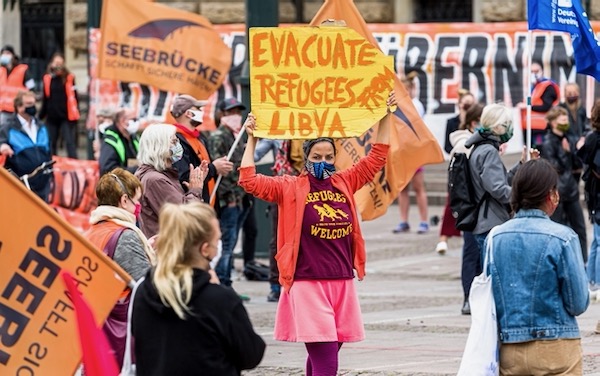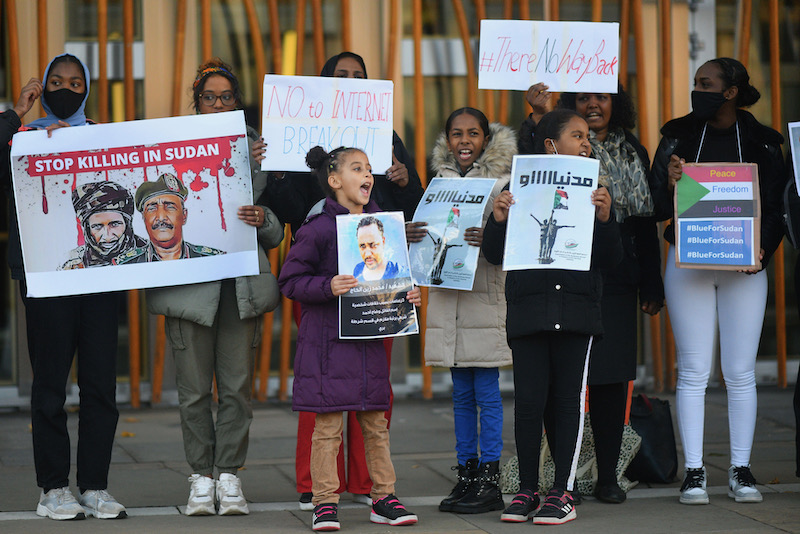Sudan’s military seized power on Monday, dissolving the transitional government hours after troops arrested the Prime Minister Abdalla Hamdok and other senior officials. Thousands of people flooded into the streets to protest the coup, and three people were reported to have died after being shot by the armed forces.
The coup leader, General Abdel Fattah Burhan, said the military had to take action because of political infighting. In the afternoon, he announced on national TV that he was dissolving the government and the Sovereign Council, a joint military and civilian body created soon after the 2019 overthrow of longtime dictator Omar al-Bashir.
The coup was predicted by the head of the bishops’ conference of Sudan and South Sudan. “Life in Sudan is very hard at the moment – everything is very expensive and the people have no bread,” Bishop Yunan Tombe Trille Kuku of El Obeid said last weekend. “This situation is intolerable for the population and the help of the international community only reaches a few,” he added. “It is possible that there will be a new coup d'état at the hands of the military,” the bishop said.
He said the population “was divided between those who want the transitional government to continue with civilian ministers and those who instead want the military to take total power. According to them, they are the only ones who can resolve the profound political crisis and provide bread.”
White House spokesperson Karine Jean-Pierre said the United States was “deeply alarmed at reports of a military takeover” and called for the immediate release of the prime minister and other officials, as did the African Union.
The UN political mission to Sudan called the detentions of government officials “unacceptable”.
Meanwhile, the people of Sudan and South Sudan have been hit by heavy rains and flash flooding in recent weeks, which have raised tensions. The UN reported that at least 800,000 people had been affected in the two countries, as rivers, including the Nile, burst their banks. James Wani, Christian Aid’s country director in South Sudan, said, “the scale of the flooding is unprecedented and is overwhelming areas along the River Nile as people have lost their crops and livestock.”



 Loading ...
Loading ...